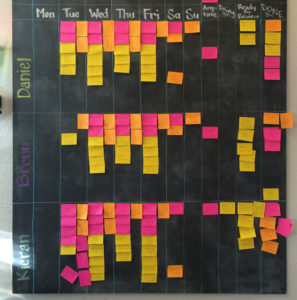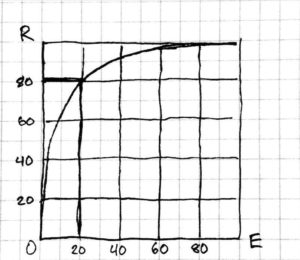College students rarely prioritize sleep. Chronic sleep deprivation is the norm—I only know a few people who consciously plan their sleep schedules.
I’m one of those few. I try to sleep 9-10 hours each night (which seems to be a shocking thing to my fellow college students). But when I fail to get sufficient sleep, I can’t function.
Turns out, it’s not just me, humans in general need at least 8 hours of sleep each night.* If we sleep less than 8 hours and we are unable to function properly.
I have seen people who are proud of how well they can function without sleep. They feel that they don’t need as much sleep as other people—when really, they just never let their brains reach their potential. They have no idea what a healthy amount of sleep would even feel like.
Everything becomes harder when I fail to rest. I can’t focus very well, I’m stressed, and I can’t get anything done.
But when I get sufficient sleep everything improves. We are not robots. It’s impossible to sustain the college schedule long term unless you sleep.
Try it for a month—you’ll see what I mean.
Life is better when you sleep.
Of course, getting enough sleep isn’t always just a matter of deciding it’s important. Next time, I’ll share some practical tips for how you can get more sleep more regularly.
*Why We Sleep, Mathew Walker, PhD

